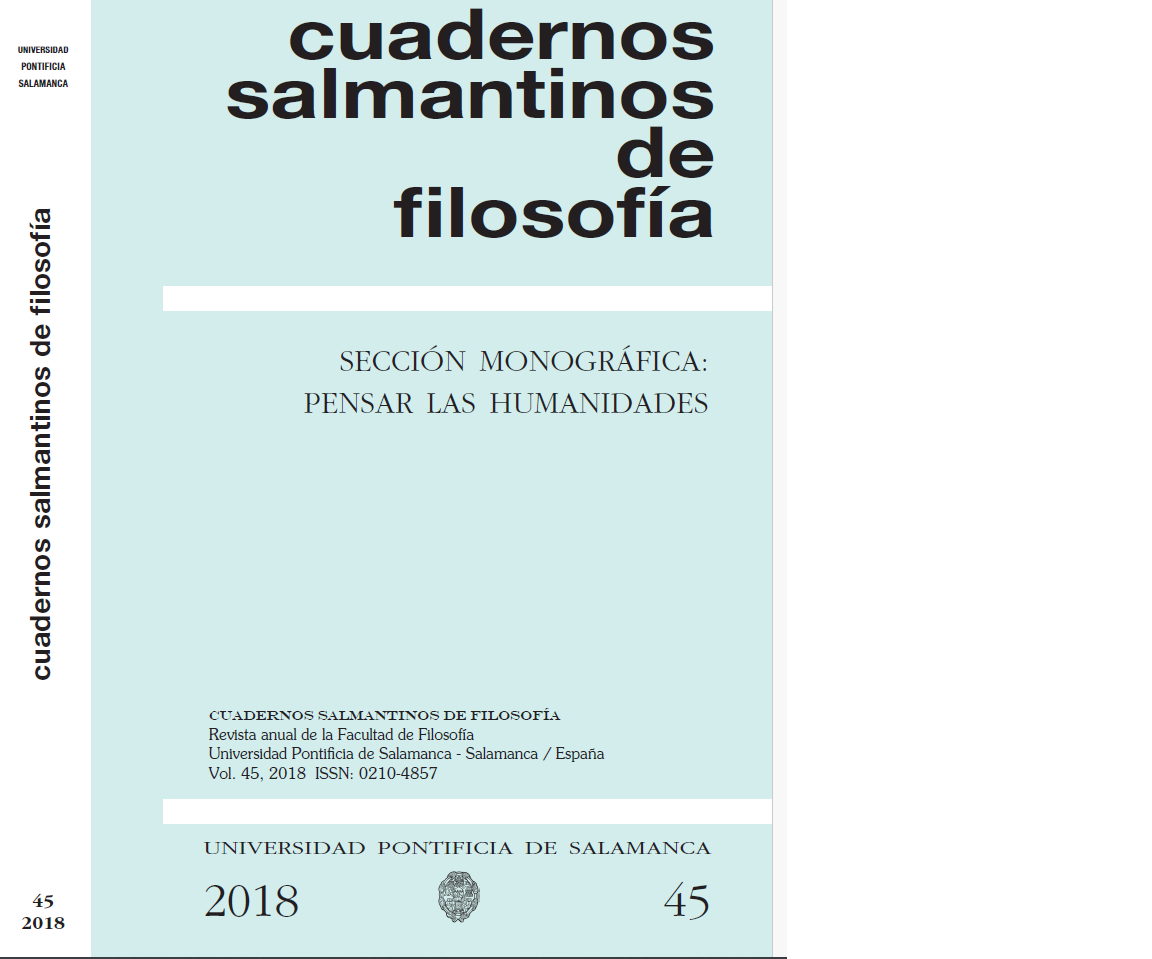The women in philosophical novels of 1902
Main Article Content
The generation of 98 emerged as a result of a complex economic, social, cultural and political situation suffered by our country. The defeat in the War of Cuba and the consequent colonial losses were the most immediate trigger that culminated in a rarefied and decadent mood. Fruit of this narrow climate emerged a new vision of philosophy and the novel, that is, a hermeneutical perspective different from the reality of the moment. In this sense, we will mention four of the main works (known as “novels of 1902”) that contributed to this theoretical construction, while we will discuss its philosophical side and the incidence of them in what is known as Spain’s problem. But what about the feminine vision? How were the representations of women in these works? What did the women of this generation have to say? In order to rethink the humanities nowadays, it is pertinent and essential to review the most immediate foundations of our philosophy and our literature, at the same time that it is crucial to review the feminine perspective because, only in this way, we can have an integrating vision of the importance and the news of the humanities.
Article Details
References
ABELLÁN, J.L.: Carmen de Burgos y el divorcio en España. En “Arbor. Ciencia, Pensamiento y Cultura”. CLXXXVI. Extra junio 2010. 55-57. DOI: 10.3989/arbor.2010.
extrajunion3006.
AZORÍN, (MARTÍNEZ RUIZ, J): La voluntad. Madrid, Cátedra, 2010.
BAROJA, P: Camino de perfección. Madrid, Alianza, 2004.
BAROJA Y NESSI, C: Recuerdos de una mujer de la generación del 98. Ed. Amparo Hurtado, Barcelona, Tusquets, 1998.
KIRKPATRICK, S: Mujer, modernismo y vanguardia en España (1898-1931). Madrid, Cátedra. Colección Feminismos. 2003.
KIRKPATRICK, S: Las Románticas: Escritoras y subjetividad en España (1835-1850). Madrid, Cátedra. Colección Feminismos. 1991.
LITVAK, L: Erotismo fin de siglo. Barcelona, Antoni Bosch, 1979.
MACHADO, A: Sobre la objetividad En “Los complementarios”. Madrid, Cátedra, 1996.
MAINER, J.C. La Edad de plata. Barcelona, Los libros de la frontera, 1975.
MANGINI, S: Las modernas de Madrid. Las grandes intelectuales españolas de la vanguardia. Barcelona, Península, 2001.
ORTEGA Y GASSET, J: Historia como sistema y Del Imperio Romano. En Obras Completas, Vol. VI. Madrid, Taurus, 2006.
ORTEGA Y GASSET, J: Papeles sobre Velázquez y Goya. Madrid, Alianza, 1983.
ORTNER, S (1974) En español: ¿Es la mujer al hombre lo que la naturaleza a la cultura? En HARRIS, Olivia y YOUNG, Kate, 1977, 1979, Antropología y feminismo, Barcelona, Anagrama.
RODRÍGUEZ GARCÍA, M: Filosofía y novela: De la generación del 98 a José Ortega y Gasset. Sevilla, Athenaica, 2018.
SOCÍAS COLOMER, M: La generación del 98 y la mujer. Análisis de una ausencia (Presentación social y representaciones literarias en prosa) En “Literatura y sociedad. El papel de la literatura en el siglo XX”, 2001.
THURÉN, B.M: El poder generalizado. El desarrollo de la antropología feminista. Madrid, Instituto de investigaciones feministas, 1993.
UNAMUNO, M: Amor y pedagogía. Madrid, Alianza, 2008.
VALLE-INCLÁN, R: Sonata de otoño. Barcelona, Austral, 2010.

